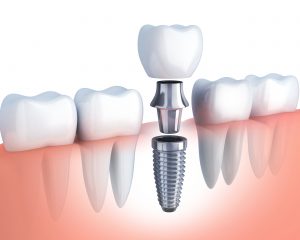
September 18-22 is National Malnutrition Awareness Week. What exactly is malnutrition? It’s when your body doesn’t get all the nutrients it needs through your diet. Here’s another question: what causes tooth bone loss? You guessed it, malnutrition. By not getting the vitamins and minerals you require, your jawbone can shrink, reducing the success rate of your dental implants. Read on to learn more about the process, and how to combat malnutrition.
How Malnutrition Affects Bone
As you age, your body naturally loses muscle and bone. However, by not getting the nutrients your body needs, this process occurs a lot more rapidly. When you don’t consume enough protein, calcium, and vitamin D, your bones start to become weak and brittle. In addition, getting plenty of exercise can make your bones stronger.
Malnutrition Affects the Success Rate of Dental Implants
Bone loss, also known as osteoporosis, can be caused by a number of factors besides malnutrition, including:
- Gum disease
- Cavities
- Missing tooth
- Developmental defects
- Injury to the gums, teeth, or jawbone
A dental implant is a metal post, meant to replace a missing tooth, that is placed directly in the jawbone. Over a period of a few months, it gradually fuses with the surrounding bone in a process called osseointegration. However, if you don’t have enough healthy jawbone tissue, the bone cannot support the implant, and your body may reject it. Your dentist may perform a bone graft, but that procedure is not always successful. It also comes with its own set of risks, such as:
- Pain
- Swelling
- Injury to the nerve
- Inflammation
- The body rejecting or reabsorbing the bone graft
How to Prevent Malnutrition
The good news is that there are a few simple steps you can take to stay well-nourished and increase the success rate of your dental implants. These steps include:
- Eating foods highest in the nutrients you need, like calcium and protein
- Taking oral nutritional supplements for certain vitamins or minerals
- Consulting your healthcare provider for advice
- Contacting programs like SNAP or Meals on Wheels if you need assistance getting all the necessary food
Malnutrition is a serious issue that affects all parts of your body, including your oral health. If you are interested in getting dental implants, talk to your dentist about your diet to make sure you’re getting all the nutrients you require.
About the Author
Dr. James Kostas has almost thirty years of experience in dentistry. He attended Tufts University School of Dental Medicine, and has since achieved Fellowship status with both the Academy of General Dentistry and the American Dental Implant Association. Currently, he practices at Complete Dental Care in Burlington, MA. To learn more about whether dental implants are right for you, get Dr. Kostas’ expert advice by clicking here or calling (781) 272-0441.







